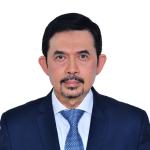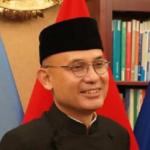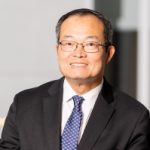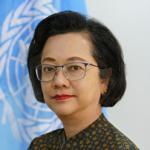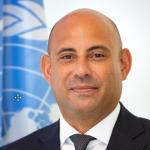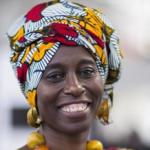(How are the crises impacting access to affordable and clean energy? How can we accelerate progress towards just energy transitions? How can we build on the momentum created by General Assembly High-level Dialogue on Energy and deliver high-impact initiatives and partnerships?)
Energy lies at the heart of both the 2030 Agenda for Sustainable Development and the Paris Agreement on Climate Change. Ensuring access to affordable, reliable, sustainable and modern energy for all will open a new world of opportunities for millions of people through new economic opportunities and jobs, empowered women, children and youth, better education and health, more sustainable, equitable and inclusive communities, and greater protection from, and resilience to, climate change.
Following its first review as an SDG in focus in 2018, this session will for the second time in the context of the HLPF review progress on SDG 7. The upcoming SDG Summit adds further significance to this second review. While much progress has been made since its first review, the world is clearly not on track for the achievement of SDG 7: globally, 675 million people were still lacking access to electricity and 2.3 billion people did not have access to clean cooking fuels and technology in 2021. The share of renewables in the global total final energy consumption (TFEC) is growing only slowly, having reached 19.1 % in 2020. In addition, the energy efficiency improvement rate hit a new low with 0,6% in 2020, which entails that the average annual rate going forward would need to be 3.4%.
In 2021, the High-level Dialogue on Energy resulted in the Global Roadmap for Accelerated SDG 7 Action which provides a guide for collective action on energy across sectors that transcends individual and piecemeal approaches and delivers scaled-up and broad impact. Importantly, the Roadmap also includes two sets of milestones for 2025 and 2030. The Dialogue also triggered some 200 Energy Compacts with voluntary commitments of over US$600 billion into SDG 7. These achievements must now be used as the foundation for transformational change through just, inclusive and equitable energy transitions. The ambition must be to show the first results of this approach already at the Global Stock take on SDG 7 which was mandated by the UN General Assembly to be held in 2024.
Proposed guiding questions:
- How can progress towards ensuring universal access to energy be accelerated in support of rescuing the SDGs?
- How can we mitigate and reverse the setbacks in achieving universal energy access caused by COVID-19 and the global energy crisis in recent years?
- How can the application of renewable energy solutions and energy efficiency measures be accelerated, to turbo-charge just, inclusive and equitable energy transitions in support of climate action and net-zero emissions?
- How can international cooperation and the flow of finance to developing countries in support of achieving SDG 7 be improved, including addressing the needs of the most vulnerable?
- How can we further strengthen intergovernmental dialogues and cooperation on energy, and leverage multi-stakeholder partnerships in support of achieving SDG 7, effectively bringing into the fold key stakeholders such as the private sector, civil society, youth and others?
Chair:
- H.E. Ms. Paula Narváez, Vice President of ECOSOC
- H.E. Mr. Arrmanatha Christiawan Nasir, Vice President of ECOSOC
Highlights:
- Highlights of the report of the Secretary-General (special edition) on progress towards the SDGs – SDG 7 on affordable and clean energy
- Mr. Leonardo Souza, Statistics Division of UN DESA
- Representative of Regional Commissions: Regional perspective on implementation of SDG 7 and interlinkages Ms. Armida Salsiah Alisjahbana, Executive Secretary of the Economic and Social Commission for Asia and the Pacific
Keynote/Presentation:
- Ms. Damilola Ogunbiyi, Special Representative of the Secretary-General for Sustainable Energy for All, Co-Chair of UN-Energy
- Mr. Simon Stiell, Executive Secretary of United Nations Framework Convention on Climate Change (UNFCCC)
Interactive panel discussion
Moderator:
- Ms. Sheila Oparaocha, Executive Director of Energia
Panelists:
- Mr. Guangzhe Chen, Vice President for Infrastructure, The World Bank
- Mr. Hans Olav Ibrekk, Special Envoy for Climate and Security, Norway
- Ms. Yoko Lu, Women's Major Group and YOUNGO (MGoS)
Lead Discussant:
- Mr. David Arinze, Program Officer, Off-Grid Energy, Diamond Development Initiatives, Nigeria, youth speaker
Ministerial Respondents:
- H.E. Ms. Nawal Al-Hosany, Permanent Representative of the UAE to IRENA
- H.E. Mr. Yusra Khan, Ambassador, Environment Stakeholder Member National Energy Council, Indonesia
Interventions of other Ministers and participants (3 minutes each)
 Welcome to the United Nations
Welcome to the United Nations
